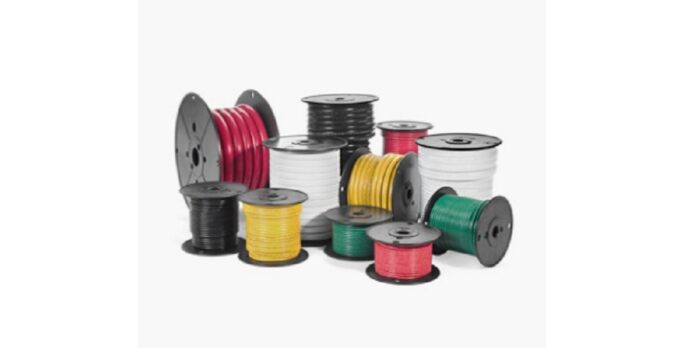The electrical industry is full of different types of specialty wire and cable. In addition to plain building wire, there is armored cable, tray cable, alarm cable, marine cable, welding cable, and many other specialized conductors.
One such class is loosely defined as solar panel cables. This is how they’re defined and what they’re used for.
What Is Solar Panel Cable Used for?
From a high level, solar panel cables are used to interconnect different solar panels in a solar array, as well as to join the other components of a photovoltaic system.
Specialized types of solar panel cables, such as DC photovoltaic cables, are used to connect the generator junction box to the central inverter.
Another class, AC photovoltaic cable, is used to connect the solar power inverter to the protection equipment and then to the electrical grid.
As a broad class of electrical conductors, though, solar panel cable is whatever is used (where appropriate) to connect the components of a solar system.
Consequently, solar panel cable is also known as photovoltaic cable, PV wire, or solar cable.
Wire vs. Cable
Although the two terms, wire and cable, are often used interchangeably, they do not carry the same meaning.
Regardless of whether the application is or is not a photovoltaic system, a wire is a single conductor within a sheath and a cable is a group of two or more conductors in a single jacket.
What Traits Should High-Quality Solar Panel Cable Possess?
Because photovoltaic cables are used chiefly outside and are exposed to the elements, there are a number of traits they should possess in order to fill that office effectively.
Because they are used outside, PV cables must be made with an insulation material that can handle high exposure to UV radiation (sunlight) which can break down most types of insulation.
Solar cables must also be able to handle high temperatures (due to prolonged exposure to sunlight) but they should, in general, be resistant to extreme temperatures on both ends of the spectrum.
In addition, solar panel cables should be highly resistant to weather and moisture. It also helps if the cables are flexible, as wiring solar panels together can require sharp bends and turns. In addition, PV solar cable benefits from abrasion and chemical resistance.
What Is Solar Panel Cable Made from?
Typically, most types of wires for photovoltaic applications are made from copper conductors instead of aluminum as copper has better current-carrying capacity than aluminum. Copper is also more heat-resistant and more flexible.
Some PV wire may be made from tinned copper conductors, like marine battery cable, to protect them against corrosion.
PV cables are made with a wide range of different insulation materials, including THHN for installation in dry indoor areas, and THWN for both indoor and outdoor locations.
Some PV cables are also made with XLPE, or cross-linked polyethylene insulation that is treated to remain UV-stable.
Where Can You Find High-Quality Solar Panel Cable
Looking for a supplier of high-quality solar panel cable? Consider EWCS Wire, which sells a wide variety of specialty electrical wire and cable via the previous link.
Using a solar cable that is appropriate for the application is critical to the functionality of the photovoltaic array as well as to safety. If you have questions, consult an electrical engineer or their experts who can help you make the right decision about which conductors to use.
Otherwise, consult their wide collection of solar panel cables and other specialty electrical wire and cable via the previous link or get in touch with them at 800-262-1598.


